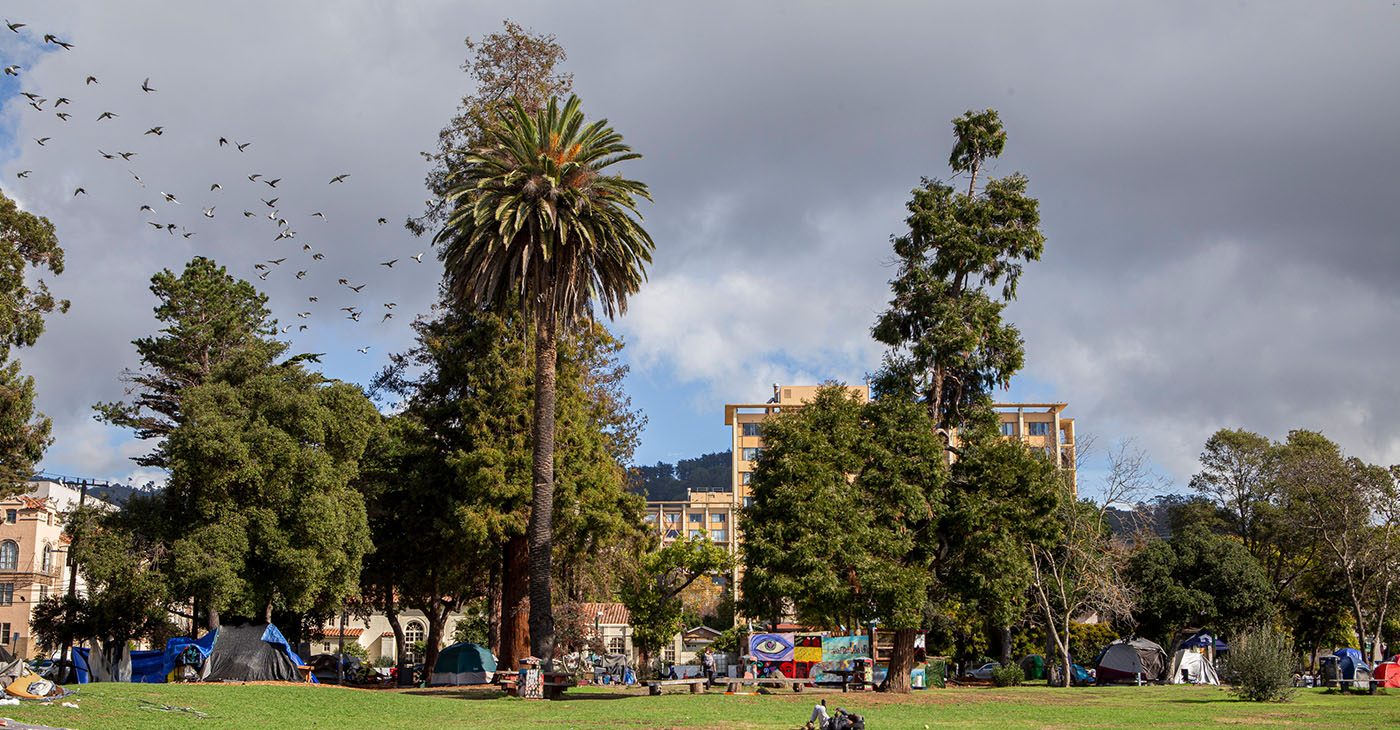BayCityNews
State Attorney General Issues Consumer Alert for Storm Price Gouging
In response to Gov. Gavin Newsom’s declaration of a state of emergency, California Attorney General Rob Bonta warned consumers that price gouging during the state’s series of storms is illegal. On Wednesday, Bonta issued a consumer alert reminding residents that it is against the law for sellers to increase prices by over 10%. The law applies to sellers with food, emergency or medical supplies, building materials and gasoline for sale.

By Bay City News
In response to Gov. Gavin Newsom’s declaration of a state of emergency, California Attorney General Rob Bonta warned consumers that price gouging during the state’s series of storms is illegal.
On Wednesday, Bonta issued a consumer alert reminding residents that it is against the law for sellers to increase prices by over 10%. The law applies to sellers with food, emergency or medical supplies, building materials and gasoline for sale.
Also prohibited are extreme price spikes for reconstruction services, cleanup services, transportation services and rental housing and hotel accommodations.
Sellers are exempt from the prohibition if the price of labor, goods or materials have increased.
Violators are subject to fines up to $10,000 or a one-year county jail sentence, and civil penalities.
Californians who believe they were a victim of price gouging are urged to report the incident to local authorities or to Bonta’s office at oag.ca.gov/report.
Copyright © 2023 Bay City News, Inc. All rights reserved. Republication, rebroadcast or redistribution without the express written consent of Bay City News, Inc. is prohibited. Bay City News is a 24/7 news service covering the greater Bay Area.
BayCityNews
SAN LEANDRO: INTERIM POLICE CHIEF APPOINTED TO PERMANENT ROLE

SAN LEANDRO POLICE CHIEF
By Bay City News
Angela Averiett has been appointed to serve as the next police chief of San Leandro.
Prior to her previous role as interim police chief in San Leandro, Averiett served as the police chief in Los Altos.
“Chief Averiett is a well-respected law enforcement veteran, who is an advocate for diversity, inclusion, and community building,” said City Manager Fran Robustelli.
Averiett is also part of The Curve, an organization that gives leaders in policing the most current and creative ideas about leadership and the resources to implement them so they can more “effectively modernize their cultures from the inside-out.”
Averiett stated, “It is an honor to be gifted the chance to serve the dedicated women and men of the San Leandro Police Department and the rich, diverse group of San Leandrans.”
Copyright © 2024 Bay City News, Inc. All rights reserved. Republication, rebroadcast or redistribution without the express written consent of Bay City News, Inc. is prohibited. Bay City News is a 24/7 news service covering the greater Bay Area.
###
ShreyaKomar 1149a06/04/2
CONTACT: Sonia Lee (650) 947-2611 or slee@losaltosca.gov
Bay Area
Arrests Made at People’s Park as Preparations For Construction on Site Begin Again
Seven people were arrested early Thursday morning at Berkeley’s People’s Park as fencing was put up in preparation for a controversial construction project to build housing for students and formerly unhoused people on the public park.

By Bay City News
Seven people were arrested early Thursday morning at Berkeley’s People’s Park as fencing was put up in preparation for a controversial construction project to build housing for students and formerly unhoused people on the public park.
Fencing and double-stacked shipping containers will continue to be installed over the next three to four days and surrounding streets will be closed off for about six days, according to a university spokesperson.
Opponents fought the University of California, Berkeley’s plan to build on the site when construction began in August 2022, but they were dealt a setback when Gov. Gavin Newsom signed a bill last year that was unanimously backed by the state Legislature to exempt the university from a requirement to consider alternative sites for the project.
The arrests Thursday morning were for trespassing, with two also arrested for failure to disperse, according to the university. They were cited and released after being booked into jail.
An appeal on the university’s construction project is still being heard by the state Supreme Court, but the university said it has the legal right to close off the construction zone while the case is litigated.
“Given that the existing legal issues will inevitably be resolved, we decided to take this necessary step now in order to minimize disruption for the public and our students when we are eventually cleared to resume construction,” UC Berkeley Chancellor Carol Christ said in a statement.
“Unfortunately, our planning and actions must take into account that some of the project’s opponents have previously resorted to violence and vandalism, despite strong support for the project on the part of students, community members, advocates for unhoused people, the elected leadership of the City of Berkeley, as well as the Legislature and governor of the state of California,” Christ said.
The plan calls for building housing for 1,100 students and a separate building with 100 apartments for low-income, formerly unhoused people, but activists have fought against the displacement of unhoused people currently living in the park and development on a green space.
The plan would preserve 60% of the 2.8-acre park’s green space and the park would remain open to the public. People living in the park have been offered transitional housing.
Video posted to social media showed trees being cut down and carried by heavy machinery overnight Wednesday into Thursday morning.
Copyright © 2024 Bay City News, Inc. All rights reserved. Republication, rebroadcast or redistribution without the express written consent of Bay City News, Inc. is prohibited. Bay City News is a 24/7 news service covering the greater Bay Area.
Bay Area
Appeals Court Denies Request to Revisit Berkeley’s Natural Gas Ban
The U.S. Court of Appeals for the 9th Circuit has ruled against Berkeley’s pioneering natural gas ban. In a majority decision filed Tuesday, the court said Berkeley’s ordinance banning gas pipelines in new construction runs afoul of the federal Energy Policy and Conservation Act.

By Kiley Russell
Bay City News
The U.S. Court of Appeals for the 9th Circuit has ruled against Berkeley’s pioneering natural gas ban.
In a majority decision filed Tuesday, the court said Berkeley’s ordinance banning gas pipelines in new construction runs afoul of the federal Energy Policy and Conservation Act.
The act “expressly preempts state and local regulations concerning the energy use of many natural gas appliances, including those used in household and restaurant kitchens,” Judge Patrick Bumatay wrote in the majority opinion.
“Instead of directly banning those appliances in new buildings, Berkeley took a more circuitous route to the same result,” Bumatay wrote. “It enacted a building code that prohibits natural gas piping in those buildings from the point of delivery at a gas meter, rendering the gas appliances useless.”
The Berkeley City Council unanimously approved the first-of-its-kind ordinance in July 2019.
It was designed to combat climate change by reducing natural gas emissions throughout the city by encouraging the use of more ecologically friendly electrical hookups.
“Climate change is an existential threat to our city, our homes, and our future,” Councilmember Kate Harrison, who authored the ordinance, said at the time. “It is time to take aggressive action to reduce our emissions across all sectors.”
The California Restaurant Association sued the city in November 2019, and in 2021 a lower court ruled against the restaurant organization.
In that ruling, the court found that the local ordinance didn’t conflict with federal regulations because it indirectly applied to appliances covered by federal law and that the federal rules should be interpreted so as not to “sweep into areas that are historically the province of state and local regulation.”
Last year, a panel of the 9th Circuit disagreed and ruled that federal law preempted the city’s new ordinance and on Tuesday, the full panel of judges denied a request to rehear the case.
Judge Michelle Friedland, writing the dissenting opinion for the 9th Circuit, said the majority opinion “misinterprets the statute’s key terms” and “needlessly blocks Berkeley’s effort to combat climate change, along with the equivalent laws passed by other local governments. Our system of federalism requires much more respect for state and local autonomy.”
Copyright © 2024 Bay City News, Inc. All rights reserved. Republication, rebroadcast or redistribution without the express written consent of Bay City News, Inc. is prohibited. Bay City News is a 24/7 news service covering the greater Bay Area.
-

 Activism3 weeks ago
Activism3 weeks agoOakland Post: Week of November 12 – 18, 2025
-

 Activism4 weeks ago
Activism4 weeks agoOakland Post: Week of November 5 – 11, 2025
-

 Activism2 weeks ago
Activism2 weeks agoIN MEMORIAM: William ‘Bill’ Patterson, 94
-

 Activism3 weeks ago
Activism3 weeks agoHow Charles R. Drew University Navigated More Than $20 Million in Fed Cuts – Still Prioritizing Students and Community Health
-

 #NNPA BlackPress3 weeks ago
#NNPA BlackPress3 weeks agoThe Perfumed Hand of Hypocrisy: Trump Hosted Former Terror Suspect While America Condemns a Muslim Mayor
-

 Bay Area3 weeks ago
Bay Area3 weeks agoNo Justice in the Justice System
-

 #NNPA BlackPress3 weeks ago
#NNPA BlackPress3 weeks agoProtecting Pedophiles: The GOP’s Warped Crusade Against Its Own Lies
-

 #NNPA BlackPress2 weeks ago
#NNPA BlackPress2 weeks agoTrump’s Death Threat Rhetoric Sends Nation into Crisis
























































